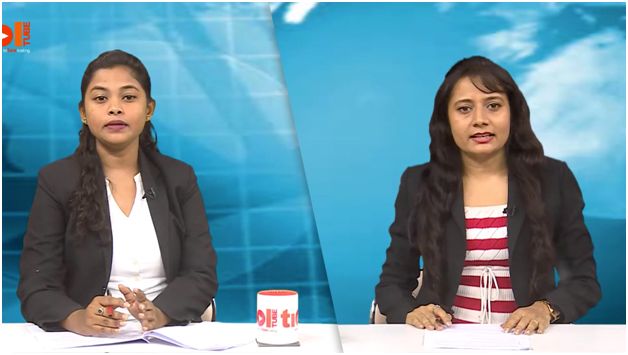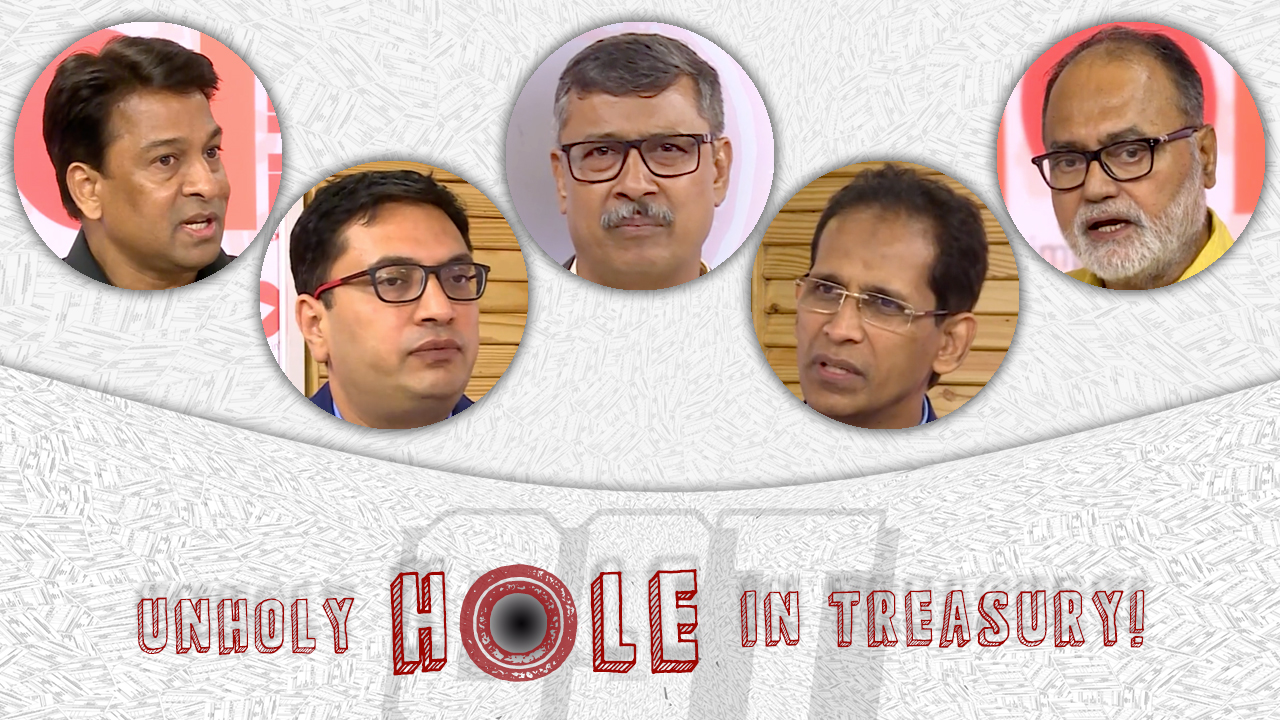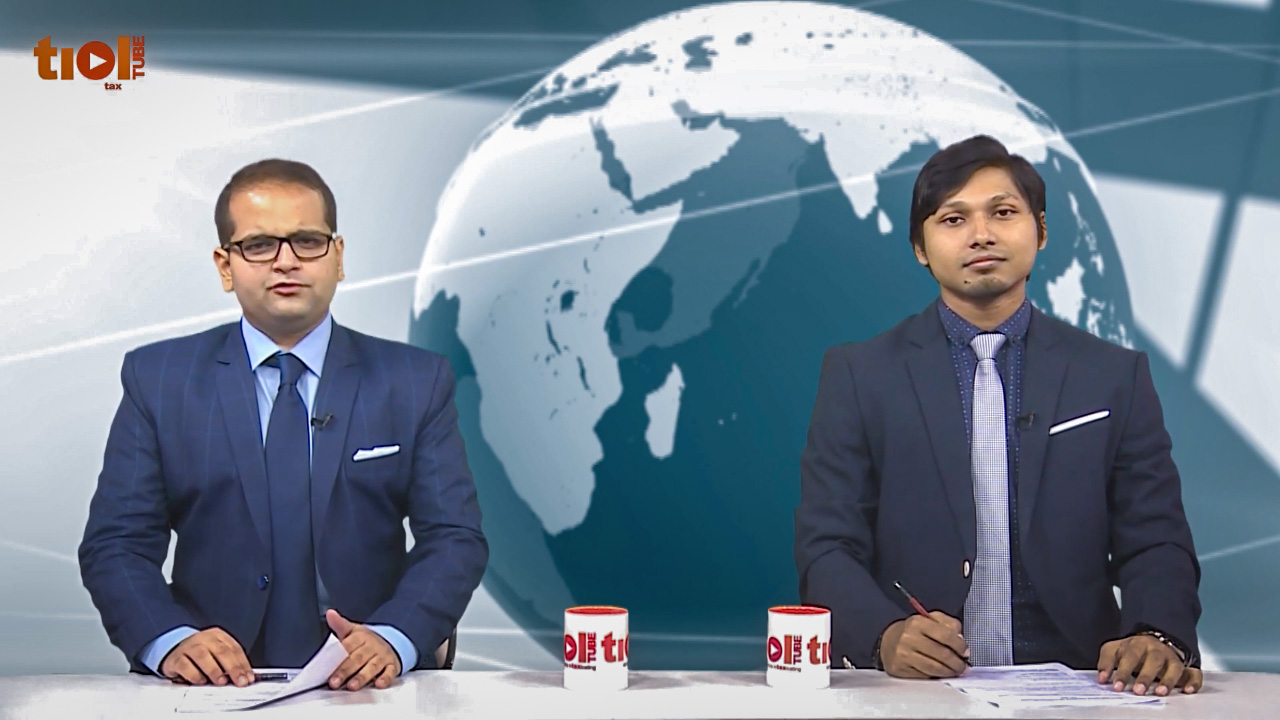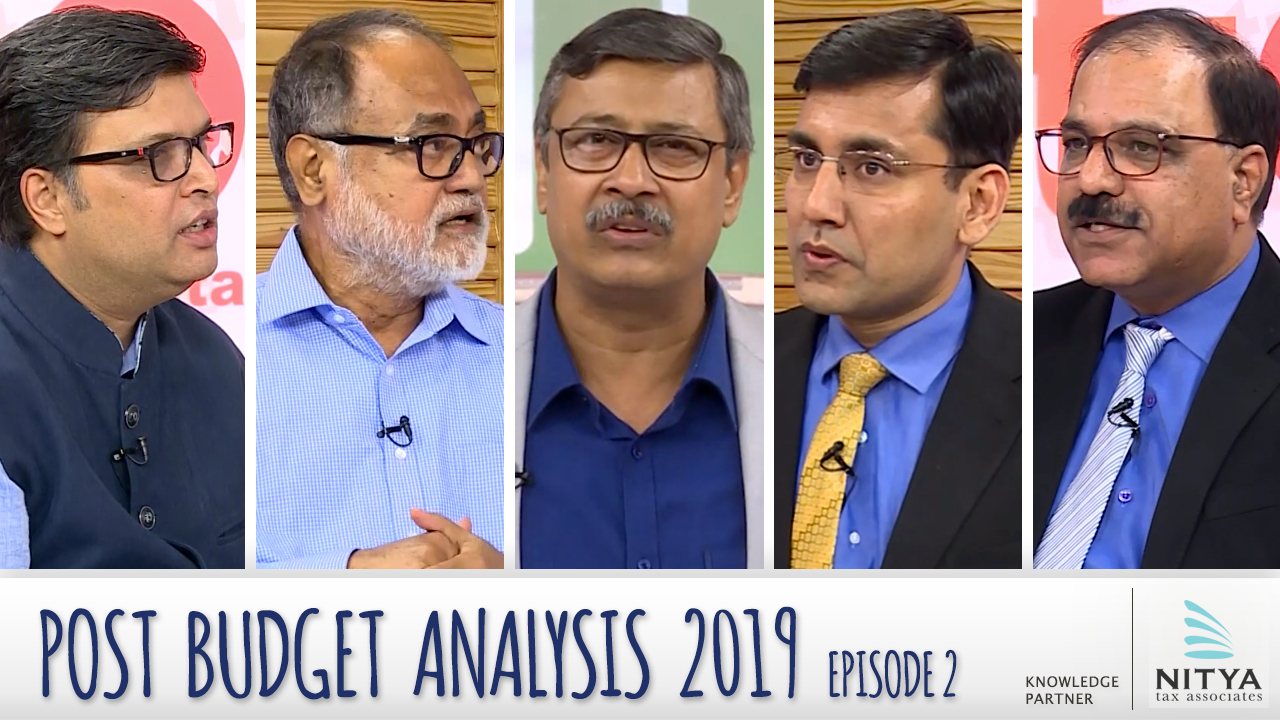|
SERVICE TAX
2019-TIOL-2246-CESTAT-MAD
Kaveri Electrical Works Vs CCE
ST - The assessee is a proprietary concern and is engaged in providing the service of installation of electrical devices to various clients - They are registered under Works Contract Services - On scrutiny of documents, it was noticed that they had provided services under Erection, Commissioning and Installation Services falling under section 65(105)(zzd) of FA, 1994 r/w section 65(30a) of the Act - SCNs were issued proposing to demand service tax under ECIS as well as Works Contract Service for the period 16.06.2005 to 31.03.2010 - The period involved is 2006-07 and it is stated therein that the works include provision of services along with supply of materials - The demand is raised as well as confirmed under ECIS - The Apex Court in case of M/s. Larsen & Toubro Ltd. has held that for the period prior to 01.06.2007, the demand under these categories of contracts of composite nature cannot sustain - Following the same, the demands confirmed under ECIS and where the works executed are of composite in nature involving both supply of materials and provision of services, the demand is set aside - Thus, the entire demand under ECIS, which involves both labour and materials prior to 01.06.2007 is set aside - For the period after 01.06.2007, for all the demands which have been confirmed under ECIS, wherein, the contracts are of composite in nature involving both supply of materials and provision of services cannot sustain as per the decision of the Tribunal in the case of M/s. Real Value Promoters. Pvt. Ltd. - As such, demands are, therefore, set aside - The issue whether composite contracts are subject to levy of service tax was contentious during the relevant period - Taking note of the fact that the issue an interpretational one, the penalties imposed in regard to the demands confirmed under WCS is unwarranted and are set aside - The assessee has contested the penalties imposed with regard to the amount confirmed in respect of M/s. Dalmia Cements Ltd. also - As already stated, the issue with regard to the Works Contract Services was contentious for a long time and therefore, the penalty imposed in this regard is set aside - The demand in respect of WCS after 01.06.2007 is upheld - The penalties imposed in respect of WCS as well as the demand under ECIS for M/s. Dalmia Cements Ltd., is remanded for considering the cum-tax benefit is set aside - All the penalties imposed are set aside: CESTAT
- Appeals partly allowed: CHENNAI CESTAT
2019-TIOL-2245-CESTAT-AHM
Omega Elevators Vs CST
ST - The assessee executes tasks for manufacturers of lifts at the sites of customers and it is contended that their submission that the incorporation of 'installation of lifts' as a particular description w.e.f. 16th June 2005 in section 65 (39a) of FA, 1994 that defines 'erection, commissioning or installation' thereby excluding the said activity from the purview of taxation which, till then, was limited to 'erection, commissioning or installation of plant, machinery or equipment', had not been taken into consideration in the impugned order - Reliance is placed on the decision of Tribunal in Kehems Engineering Pvt Ltd 2015-TIOL-1662-CESTAT-DEL - The submission on behalf of assessee that the dispute is squarely covered by earlier decision of Tribunal in re Keehems Engineering Pvt Ltd is not without merit - 'Commissioning or installation' in section 65(28) was expanded to include 'erection' and renumbered as section 65(39a) w.e.f. 10th September 2004 but, nevertheless, relatable only to 'plant, machinery or equipment' till 16th July 2005 when the activity was further extended to certain installation services by specific enumeration therein - That 'lifts', which the assessee is concerned with, is one of those is not in dispute - It is clear that the dichotomy envisaged in definition is deliberate, specific and mutually exclusive - Language is a means of communication through the articulation of sounds that, with the development of recording technology, is manifested, singly or in combination, as the written word - The dexterity inherent in the spoken that vests it with versatility and resilience is curtailed by ineffaceability of the letter - Therefore, for proper comprehension, it is the context and concatenation that needs appreciation - The expressions 'erection', 'commissioning' or 'installation' may, to a general render, appear to be synonyms - Yet, the conjunctive separator 'or' suffices to emphasize that these are mutually exclusive - Likewise, though such separator is absent between the two sets of activities after the amendment of 16th June 2005, the separate enumeration after the commonality of 'installation' in both is indicative that legislative intent is not mere disambiguation but of expanding the tax base - Any other construction would be disharmonious because all the new enumeration can be related to the existing taxable activity - The legal position is, thus, unambiguously clear - The tax liability on 'erection, commissioning or installation' prior to 1st June 2007 was limited to execution of work that did not involve supply of materials and that, prior to 16th June 2005, even such service simpliciter did not extend to 'lifts' owing to which the demand in impugned order is without authority of law: CESTAT
- Appeal allowed: AHMEDABAD CESTAT
2019-TIOL-2244-CESTAT-AHM
Welcome Hotel Vadodara Vs CCE & ST
ST - The assessee is a hotel which provides various services such as health club and fitness centre & outdoor catering - The issue at hand pertains to the interpretation of Notification No.1/2006-ST - This Notfn provides abatement from taxable value subject to condition that Cenvat credit of duty on inputs or capital goods or the Cenvat credit of service tax on input services, used for providing such taxable services, has not been taken under the provisions of the CCR, 2004 - The abatement was denied to the assessee on grounds that the it had availed Cenvat credit on Mandap Keeper Services - Hence the present appeal.
Held - Apparently, the assessee can avail credit for all services except for those which are used for providing the services specified in Notification No. 1/2006-ST - In the instant case, the assessee admittedly availed credit of Telephone services, Repair and maintenance (telephone lines laundry, air conditioning), Internet café, contract services (Security services), Technical consultancy service (services used running hotel), Advertisement services, rent a hotel counter service - The services such as Telephone services, Repair and maintenance services, Technical consultancy service, contract services, Advertising services are common input services having direct or indirect nexus with activities undertaken by the hotel - For instance, to obtain mandap keeping service, the assessee would have used Advertising services to attract the customers, Telephone services to interact with them, Repair & maintenance service of control room and and AC for maintenance of light and air conditioning during provision of Mandap Keeping Service - Hence there is no merit in assessee's claim to have not availed credit of input services used in providing Mandap Keeping service - Hence the assessee's appeal lacks merit: CESTAT
- Assessee's appeals dismissed: AHMEDABD CESTAT
CENTRAL EXCISE
2019-TIOL-1731-HC-MAD-CX
Mohamed Ghouse Vs ACCE
CX - The respondent filed complaint before the Chief Judicial Magistrate, avered that the petitioner has committed offences punishable under Section 9(1) (a) of CEA, 1944, as amended r/w Rule 174 r/w Section 6 of CEA as amended and also the Magistrate taken the complaint on file and found that primafacie case is made out and there are sufficient materials available to proceed the case further against the revision petitioner and to frame the charges - On reading of complaint, as well as the list of admission annexed with the complaint, this Court also found that there are allegations levelled against revision petitioner in complaint and on reading of the allegations levelled in complaint and there are materials to frame the charge against the revision petitioner to proceed further - On reading of averments made by respondent and list of documents annexed with the complaint, this Court finds that there is a primafacie case against revision petitioner to frame the charge and to proceed with the case further - Therefore, this Court finds that there is no perversity in the order passed by Chief Judicial Magistrate and this Court finds there is no merits in revision, the revision is dismissed - Since the matter is pending from 2006 onwards, the Chief Judicial Magistrate is directed to frame the charge within a week: HC
- Criminal Revision Case dismissed : MADRAS HIGH COURT
2019-TIOL-1730-HC-MAD-CX
Stanadyne Amalgamations Pvt Ltd Vs CCE
CX - The assessee started off its 100% EOU for manufacture of Carbon Brushes, but, subsequently, they surrendered their EOU status on 23.2.2012 by adopting De-bonding procedure and became a DTA Unit - At the time of De-bonding, assessee paid appropriate Duty and CVD on imported/indigenously procured raw materials lying in Stock and capital goods on depreciated value as per Rules which were procured and imported without payment of duty when it was 100% EOU and after De-bonding on 23.2.2012, it became liable to pay such Duties in accordance with Notfn 22/2003-CE(NT) - There is no dispute that the Duties in question were paid by assessee on such De-bonding on 23.2.2012, however, not adopting the procedure for payment through TR 6 Challan Forms - The whole of the Rule 3(1) is the enabling provision for giving such Cenvat Credit and the Proviso therein inserted later on by Notfn 35 of 2008 cannot be said to be a stand alone enabling power to provide such Cenvat Credit to the assessee - Such a novel and out of context interpretation of said Proviso, which, is not only happily worded, but also, placed at the wrong place in Rule 3(1), cannot be accepted to defeat the very purpose of Rule 3(1) upon an 100 EOU, when converted upon De-bonding to a DTA - The allowing of Cenvat Credit on raw material was never in doubt whether on de-bonding or otherwise on procurement of raw material - Rule 3 does not make any such distinction - Therefore, the Judgments cited at Bar do not deflect the position of Proviso inserted in Rule 3 by Notfn 35/2008 - The Tribunal has erred in denying such benefit of Cenvat Credit to assessee and therefore, the impugned order passed by the Assessing Officer as well as the Appellate Authority below are set aside: HC
- Appeals allowed : MADRAS HIGH COURT 2019-TIOL-2252-CESTAT-HYD
Mahindra & Mahindra Ltd Vs CC & CE
CX - This application for Early Hearing has been filed by Revenue - This appeal is pending since November 2017 and it involves a total revenue of Rs. 114 crores and eight appeals on identical issue with respect to the same assessee for different periods have already been decided by this Bench in favour of assessee vide 2018-TIOL-2895-CESTAT-HYD - Hence, the application for early hearing is allowed - The issue involved is; whether the vehicles “Mahindra Bolero Camper” and its variants manufactured by assessee are classifiable under CETH 8703 or CETH 8704 - The vehicles in dispute are meant for carrying both persons and goods - In the aforesaid Final Order, it has been held that the goods in question are classifiable under 8704 "Motor Vehicles for transport of goods" - Accordingly, the appeals are allowed with consequential benefits : CESTAT
- Appeal allowed : HYDERABAD CESTAT
2019-TIOL-2243-CESTAT-AHM
Parikh Packaging Pvt Ltd Vs CCE
CX - This appeal has been filed by assessee against the order demanding reversal of Cenvat Credit in respect of used printing cylinders sold as scrap - Proviso to Rule 5A prior to 01/04/2012 referred only to clearances of capital goods and the treatment to be given to Cenvat Credit taken in respect of such capital goods - After amendment, with effect vide notfn 18/12-CE w.e.f. 01/04/2012, the Rule 5A was amended and it removed the distinction between capital goods cleared as such or as waste and scrap - Subsequently, vide notfn 12/13-CE (N.T.) , the definition was again amended and it specifically prescribed the treatment to be given to capital goods cleared as waste and scrap - The assessee have already reversed the credit based on transaction value - The assessee is only contesting the liability for period upto 01/04/2012 and after 27/09/2013 - It is seen that from 01/04/2012 to 27/09/2013, the law is very clear and even in respect of capital goods cleared as scrap, the assessee is required to reverse the credit as per the said provision - In some of the cylinders, they have not availed the Cenvat Credit - The said claim was, however, not made before the lower authorities - It is apparent, that the provisions of CCR, 2004 would apply only to the capital goods cleared as scrap on which they have availed Cenvat Credit - In respect of others, the said provision may not apply - Thus, the reversal of CENVAT Credit needs to be requantified in such cases - Accordingly, for the period 01/04/2012 to 27/09/2013, the matter is remanded to original Adjudicating Authority to work out to exact liability - In respect of period after 27/09/2013, the law is very clear and capital goods cleared as scrap has to be charged to duty on the basis of the transaction value - The assessee has already discharged the liability and thus the demand cannot sustain for that period - As regard the issue of limitation, the law and the material time was very clear and there was no scope for doubt - In these circumstances, the extended period is rightly been invoked - The appeal is partly allowed and partly remanded - The penalty will be requantified: CESTAT
- Appeal partly allowed: AHMEDABAD CESTAT
2019-TIOL-2242-CESTAT-AHM
Sweet Industries Vs CCE & ST
CX - Rule 4(5)(a) of CCR, 2004 lays down that the assessee can send inputs and capital goods for job work and resultant manufactured goods should be returned back to the principal manufacturer within 180 days and the same can be cleared on payment of duty - In such process, even though the manufacturing is physically carried out by the job workers but it is exclusively on behalf of the assessee, therefore, the manufacturing done by the job workers is treated as manufacturing by the assessee himself - Even, as per Notification No. 214/86-CE dated 25.03.1986, in case of job worker, the principal manufacturer is required to pay duty - since the final product is cleared by the assessee as if it is manufacturing the excisable goods, they are clearly entitled for Cenvat credit – no infirmity in the impugned order, hence same is upheld and Revenue appeal is dismissed – Assessee has withdrawn their appeal: CESTAT [para 3, 5]
- Revenue appeal dismissed:
AHMEDABAD
CESTAT
CUSTOMS
NOTIFICATION
cnt58_2019
CBIC notifies Tihi village in MP for purpose of unloading of imported goods and loading of export goods CASE LAWS
2019-TIOL-1732-HC-MUM-CUS Arun H Sukhtankar Vs Additional Director General Of Foreign Trade
Cus - The Petitioner was the director of the Company at the relevant time - He however, submitted that they had resigned from directorship on a letter dated 13th August, 2002 and repeated this position, under a subsequent letter dated 24th August, 2004, they were therefore, not liable of payment of any penalty - The Petitioner's reliance on the letters dated 13th August, 2002 and 25th August, 2004 would be of no avail - Though this letter carry the date of 13th August, 2002, the stamp of the Courier Company delivering such letter carries the date of 13th August, 2004 - Thus, clearly the said letter, though dated 13th August, 2002 transmitted for service only in August, 2004 - In the subsequent letter dated 25th August, 2004, there is a reference to the previous letter dated 13th August, 2002, under which the Petitioner had purportedly resigned as Managing Director of the Company - The previous letter dated 13th August, 2002 itself was never dispatched even if waiting, close to two years, its reliance on the letter dated 23th August, 2002 would be of no consequence - The observations and conclusion of the Appellate Authority are factual in nature, wherein the facts found that the Petitioner was thus, Managing Director of the Company, when permission to import goods without payment of duty was granted on the condition of fulfilling of such export obligation - The Company admittedly failed to discharge such obligation - The Petitioner had therefore, exposed himself for the liability arising out such authorization for import of goods - The petitioner does not dispute the order of Appellate Authority on merits, but only disputes the liability of Petitioner as the Director of the said Company: HC
- Writ petition dismissed : MADRAS HIGH COURT
2019-TIOL-2241-CESTAT-ALL
PG Electroplast Ltd Vs Pr.CC
Cus - The assessee-company imported 14 inch color picture tubes from a Malaysian entity - During the relevant period, the assessee imported various consignments and filed 70 bills of entry - The price of each color picture tube was USD 20.20 on CNF basis and payments were made through bank LCs - The goods were cleared upon payment of Customs duty - Through a subsequent Notfn, Anti Dumping Duty (ADD) was imposed such imports & the specified landed value of the goods in such Notfn was USD 21.77 per piece - Hence ADD was leviable if the value was lower than USD 21.77 - In this regard, the DRI investigated the assessee and searched the factory premises of the assessee and the residence fo the assessee's CMD, whereupon several documents and electronic devices were seized - Statements of several persons were recorded, wherein it was admitted that the invoices had been over-valued in a bid to avoid payment of ADD - SCN was issued after invoking extended limitation, proposing to raise duty demand for recovery of ADD - It was alleged that the assessee indulged in suppression of facts - The proposals in the SCN were confirmed upon adjudication, along with personal penalties being imposed on the directors in the firm - Hence the present appeal.
Held - It is seen that the Adjudicating Authority denied cross examination of the persons whose statements were relied upon for issuing SCN - The Adjudicating authority also held that the most clinching part of the investigation is the admission made by the second appellant herein, in his volunatry statements recorded u/s 108 of the Customs Act - It was admitted that his company over-valued the price of the color picture tubes to avoid payment of ADD - From the O-i-O, it is inferred that the Revenue had no evidence to corroborate the voluntary statements - It is settled principle of law that the assessment of bill of entry is an adjudication order and if within the period provided under the Customs Act, appeal is not filed before the Commr.(A), then the assessment attains finality & such final assessment cannot be re-opened - Besides, the assessee pertained to between May 2010 to January 2011 and attained finality after lapse of the appeal period - Hence the SCN issued in May 2015 cannot seek to re-open such assessment - Moreover, all the information was provided by the assessee during the assessment period & so the allegation of suppression of facts is unsustainable - Hence the proceedings are hit by limitation - The O-i-O is not sustainable either or merits or on limitation: CESTAT
- Appeals allowed/In favor of appellant: ALLAHABAD CESTAT
2019-TIOL-2240-CESTAT-MAD
Onkyo Sight And Sound India Pvt Ltd Vs CC
Cus - The assessee is importer of Audio and Video equipment and are engaged in trading of same in India - Dispute relates to the classification of imported items viz. Audio Visual Receivers (AVR) and Home Theatre Systems (HTS) imported by assessee, whether required to be classified under Heading 8527 of Customs Tariff as held in impugned Order or under Heading 8518 ibid as claimed by assessee - The device having an AM/FM receiver built-in is only by way of an added functionality and is definitely not the main function of the item - The facility for receiving AM/FM radio signals is verily present in a number of audio/video devices as an add-on feature, such as in mobiles, watches, speakers and even devices with USB connection - This is not just because the cost of such radio receptors has come down, but also that the size of such receivers has shrunk from the large size transistor era receivers of long ago - To allege that the Audio Visual Receiver (AVR) or, for that matter, the Home Theatre System (HTS), has a predominant usage as an AM/FM receiver is surely ludicrous - It is seen that the SCN has demanded differential duty in respect of both AVR and HTS imported by assessee - However, most of the discussions, if not all, in the SCN have focussed on AVR and there is no separate ground or reasoning as to why the HTS should also be brought into CTH 8527 other than the common allegation that they too are predominantly AM/FM receivers - It cannot be dispute that even the built-in AM/FM receiver cannot play on its own on the AVR - It definitely will require connected speakers for that purpose - In the radio reception apparatus envisaged in classification under CTH 8527, one important aspect is that such receivers will not only be able to receive signals, but also make playback without the requirement of any additional add-on speakers or other equipment - The premises on which the Department has homed in to bring in the classification of AVR and HTS under Chapter Heading 8527 cannot be sustained - Assessee had produced the opinion of Director, Department of Electronics, Information Technology, who had advised that the AVR should be treated as an amplifier - The adjudicating authority has not accepted the said opinion - However, there seems to be no such objection in accepting the opinion given by Senior Manager in charge of Supply Chain, who is not even a technical person of a competitor company - If there was doubt on the technical functionality of imported items, they could very well have taken samples and got them tested from reputed institutions under the Government of India - This was certainly not done and the entire allegation has been based on assumptions and presumptions - The investigations have definitely commenced four years after the first import vide Bill-of-Entry - As correctly mentioned by assessee, most of these assessments were completed by proper officer of Customs and there was nothing untoward found by Department - The charge of mis-declaration or mis-classification with intention to evade payment of Customs Duty cannot be appreciated - The demand for the predominant period covered in SCN cannot be sustained - On both merits and limitation, the impugned Order cannot be sustained: CESTAT
- Appeals allowed: CHENNAI CESTAT
|
|







